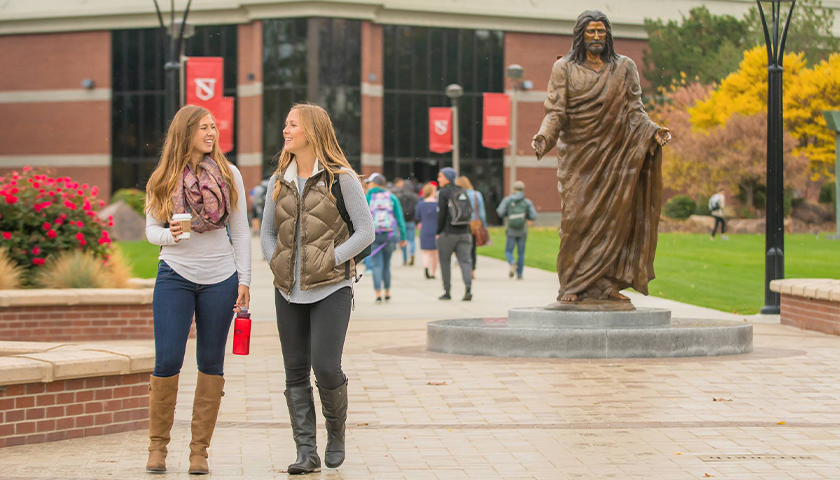by Logan Washburn
A Christian university’s Student Government Association is recommending students take “helpful classes” related to “anti-racism.”
The Northwest Nazarene University Student Government Association sent out an email referring students to an anti-racism guide that promoted several social justice courses. This document, sent out in an October 19, 2020, email obtain by Campus Reform, was authored by SGA Campus Ministries.
This anti-racism guide contains a long list of poems, books, videos, and articles on the topic of racism. Many of these resources originate from widely-known proponents of critical race theory, such as Ibram X. Kendi and Robin Di’Angelo.
Among these resources is a list of anti-racist classes to take at NNU. The classes advertised by Student Ministries are Human Diversity, Social Justice and Modern Society, Social Justice and the Christian Tradition, Race, Class, and Gender, Introduction to Cultural Anthropology, and Issues of the Global Church.
The first class on the list, Human Diversity, is a psychology course. It is described as follows:
This course examines the multifaceted levels of diversity in humanity and will review ways to approach diversity in a sensitive and appropriate manner. Topics to be covered include a history of human diversity, cultural diversity, age differences, gender issues, spirituality, sexuality, religious diversity, physical impairments, and how to be sensitive to issues of diversity as they pertain to working with people. Key human rights and understandings will be explored.
The second class listed, called Social Justice and Modern Society, is a social work class. It covers the following material:
This course is an introduction to the recurrent needs of citizens and how society is organized to respond to these needs with an emphasis on small towns and rural communities. The course is organized around the major themes of poverty, socioeconomic class differences, and other major differences among people that interact with poverty and classism. The course includes a review of the history and current nature of social welfare services.
The next class on the list, Social Justice and the Christian Tradition, is a theology class. This class is summarized in its course description:
The virtue of justice has deep roots in Christian Scripture, philosophy, and the Christian theological tradition as an essential feature of a society ordered toward the common good. What does justice look like in the tradition of Christian thought? What makes a just society? How might Christians actively contribute to a society that is more just? This course encourages students to explore such questions through Scripture, the church’s theological heritage, and engagement with the work of active practitioners today.
Race, Class, and Gender is a cultural anthropology course. It is outlined as covering the following material:
A study of the contemporary diversity of society with a focus on inter-group relations (e.g., assimilation, conflict, and pluralism). Emphasis is placed on gaining an understanding of the multi-cultural nature of American society in comparison with other societies and on formulating a viable response.
The fifth class listed is an Introduction to Cultural Anthropology.
According to its course description, “This course focuses on basic perspectives and concepts for understanding and productively relating to groups and individuals in other cultures. It includes an introduction to the discipline, history of the discipline and its development, and methods of cultural anthropology.”
– – –
Logan Washburn is a Michigan Campus Correspondent for Campus Reform. He is currently majoring in Politics at Hillsdale College, with a minor in journalism. Logan is a member of Hillsdale Young Americans for Freedom, a writer for the Hillsdale Collegian, and a writer for The RF Angle.
Photo “Students on campus” by Northwest Nazarene University.





